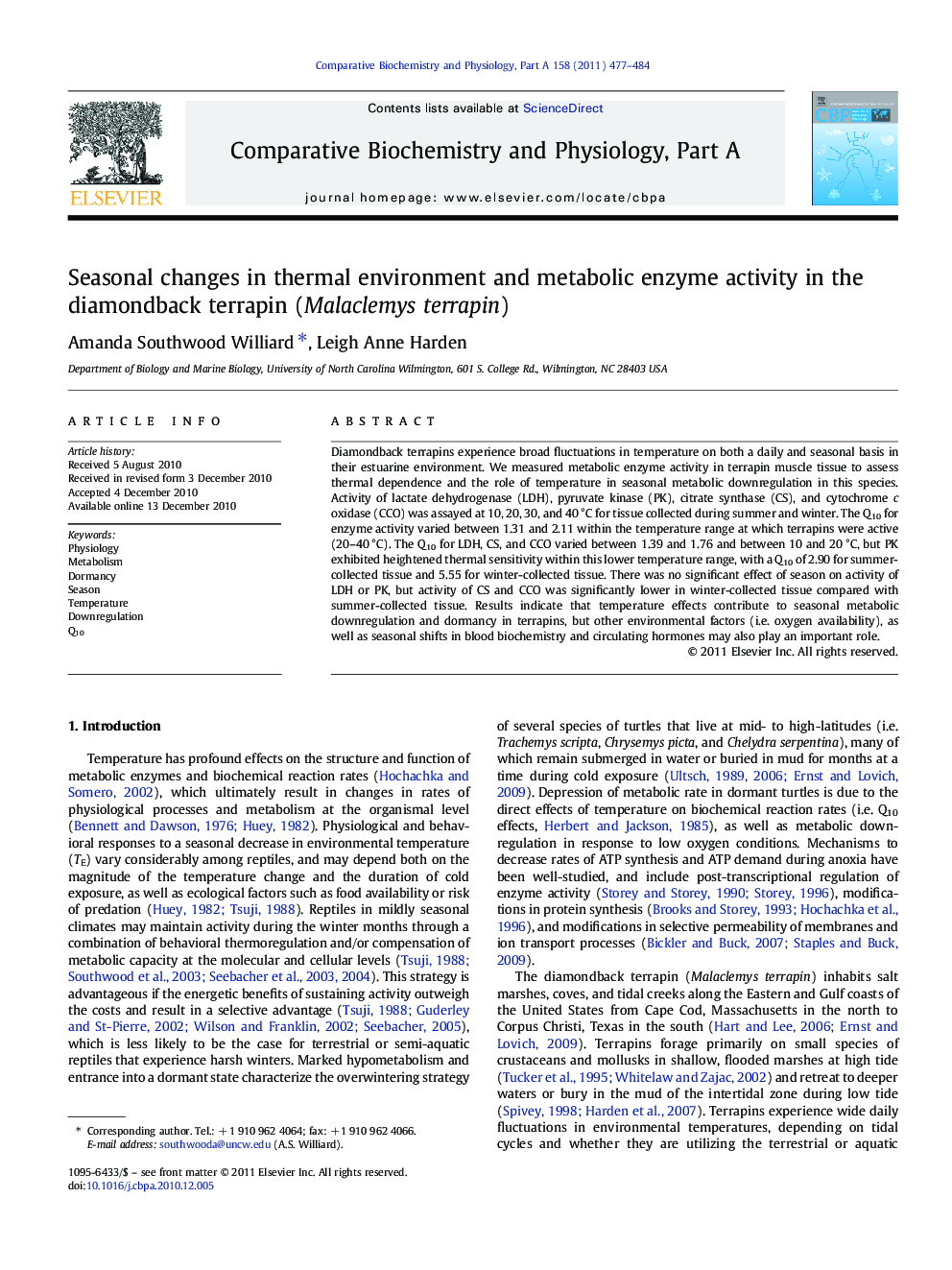| Article ID | Journal | Published Year | Pages | File Type |
|---|---|---|---|---|
| 10819022 | Comparative Biochemistry and Physiology Part A: Molecular & Integrative Physiology | 2011 | 8 Pages |
Abstract
Diamondback terrapins experience broad fluctuations in temperature on both a daily and seasonal basis in their estuarine environment. We measured metabolic enzyme activity in terrapin muscle tissue to assess thermal dependence and the role of temperature in seasonal metabolic downregulation in this species. Activity of lactate dehydrogenase (LDH), pyruvate kinase (PK), citrate synthase (CS), and cytochrome c oxidase (CCO) was assayed at 10, 20, 30, and 40 °C for tissue collected during summer and winter. The Q10 for enzyme activity varied between 1.31 and 2.11 within the temperature range at which terrapins were active (20-40 °C). The Q10 for LDH, CS, and CCO varied between 1.39 and 1.76 and between 10 and 20 °C, but PK exhibited heightened thermal sensitivity within this lower temperature range, with a Q10 of 2.90 for summer-collected tissue and 5.55 for winter-collected tissue. There was no significant effect of season on activity of LDH or PK, but activity of CS and CCO was significantly lower in winter-collected tissue compared with summer-collected tissue. Results indicate that temperature effects contribute to seasonal metabolic downregulation and dormancy in terrapins, but other environmental factors (i.e. oxygen availability), as well as seasonal shifts in blood biochemistry and circulating hormones may also play an important role.
Related Topics
Life Sciences
Biochemistry, Genetics and Molecular Biology
Biochemistry
Authors
Amanda Southwood Williard, Leigh Anne Harden,
